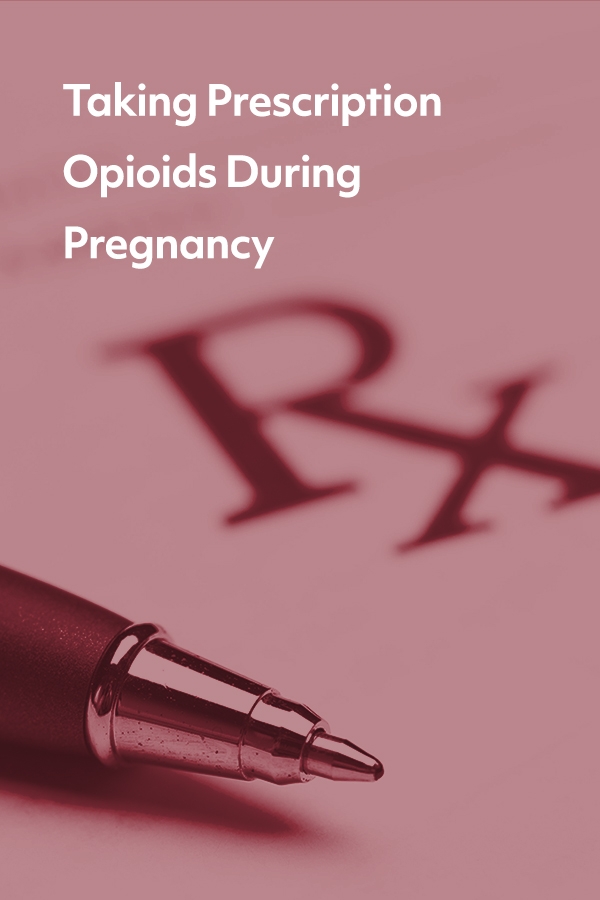Taking prescription opioids during pregnancy is a contentious subject. Many people have a knee-jerk, negative reaction to the slightest suggestion of it, given the risk of the baby developing neonatal abstinence syndrome. However, just like anyone else in pain, sometimes people who are pregnant may need and be directed to take prescription pain relief. It is possible for prescribed medications and substance use to lead to a substance use disorder, like opioid use disorder.
Opioid pain relief during pregnancy is best decided between a patient and their medical provider. The doctor will have knowledge and suggestions based on the patient’s individual history and medical information. That said, here is some general information about prescription opioids being taken during pregnancy.
What are prescription opioids?
Prescription opioids are painkillers that a healthcare provider may prescribe for severe pain. This can be things like the pain from a broken bone, injury, or dental work. There are a range of prescription opioids available, including:
- Codeine
- Fentanyl
- Oxycodone
- Hydrocodone
- Morphine
- Methadone
- Hydromorphone
- Tramadol
These are strong medications. They can become habit-forming and carry the risk of developing opioid use disorder. The reason they are addictive is because opioids produce a euphoric-type feeling in the brain that promotes feelings of calm and happiness. Most of these drugs are intended to be taken under medical supervision. However—as anyone who has seen a news story about the opioid epidemic is aware—they are also available illicitly and carry a strong risk to those using them if used in this way. Those risks include addiction and potential overdose.
Why are the risks of prescription opioids during pregnancy?
Taking prescription opioids during pregnancy can cause problems for both the pregnant person and the fetus. According to the Centers for Disease Control and Prevention (CDC), those risks include poor health effects for mothers and their babies, risk of overdose, poor fetal growth, stillbirth, preterm birth, birth defects, and neonatal abstinence syndrome.
The American College of Obstetricians and Gynecologists (ACOG) make a number of recommendations to prevent the development of NAS and opioid use disorder during pregnancy, including:
- Substance use disorder screening should be part of comprehensive obstetric care and should take place during the first prenatal visit so that an intervention or referral can be made for those at risk.
- For chronic pain, ACOG recommends strategies to avoid or minimize the use of opioids for pain management.
- For pregnant individuals who already have a dependence on opioids, medication-assisted treatment is recommended.
What is neonatal abstinence syndrome?
Neonatal abstinence syndrome is a treatable condition categorized as a collection of symptoms experienced by newborns whose mother has taken opioids for a prolonged period* during pregnancy. When newborns with NAS are delivered, they may experience withdrawal from certain substances, like opioids, 72 hours after birth. NAS withdrawal symptoms include:
- Excessive or high pitched screaming
- Sleep difficulties
- Vomiting
- Dehydration
- Loose stools
- Sweating
- Tremors
- Seizures
- Hyperactive reflexes
The type and severity of neonatal withdrawal symptoms experienced by the newborn depend largely on the amount of exposure to substances and the type of substance and whether the baby was born prematurely.
*NAS is not caused by the use of opioids given as a one-off during childbirth.
Treatment for opioid use disorder during pregnancy
Opioid use disorder is a condition caused by the persistent use of opioids that creates a physical and psychological dependence on opioids. Cessation of use can cause withdrawal symptoms that are uncomfortable.
If a person who is experiencing opioid use disorder is pregnant, or planning pregnancy, they should first speak to their healthcare provider to create a treatment plan. According to the CDC, the creation of a treatment plan early in pregnancy can increase the chances of a healthy pregnancy.
As a general rule, it is not recommended by the CDC to suddenly stop taking opioids during pregnancy as this can have an effect on the pregnancy, such as preterm labor, fetal distress, or miscarriage. The current clinical recommendations for the treatment of opioid use disorder in pregnancy include the use of medication-assisted treatment instead of supervised withdrawal. This approach increases better outcomes and decreases the risk of relapse (returning to use).
After birth, it is important that individuals who gave birth receive support to help them maintain their recovery and reduce the risks of returning to use. You can learn more about the treatment of opioid use disorder in pregnancy on the CDC website.
If a pregnant person is experiencing severe pain and is considering opioid medication, they should carefully discuss the risks and benefits with their healthcare provider.









